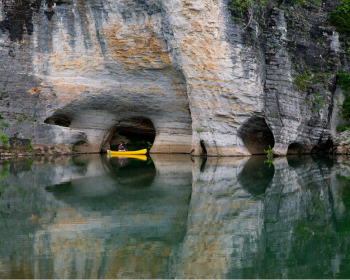Earthrise Settles Case Challenging Oregon’s NPDES Permit for Industrial Stormwater
On behalf of our clients Columbia Riverkeeper and Northwest Environmental Defense Center (NEDC), Earthrise successfully settled a lawsuit challenging Oregon’s general NPDES permit for discharges of industrial stormwater on September 20, kicking off a two-phase permit revision process that will ultimately result in first-ever numeric limits for a host of toxic pollutants and other permit conditions to strengthen water quality protections for vulnerable aquatic species.
Earthrise filed suit in September 2017 in Multnomah County Circuit Court, alleging that DEQ’s industrial stormwater general permit, called the “1200-Z Permit,” failed to include adequate limits for toxics and failed to require monitoring and reporting sufficient to keep DEQ and the public aware of stormwater pollution events. The 1200-Z Permit regulates over 800 industrial sites in Oregon where runoff is often exposed to heavy machinery, chemical spills, or oil and gas leaks before carrying toxics and other harmful pollutants to nearby rivers and streams.
Prior to this suit, industrial stormwater permits in Oregon (as in most other states) relied heavily on the use of “best management practices” coupled with non-binding numeric benchmarks for a range of pollutants. But research has shown that this system is inherently flawed and has failed to ensure compliance with water quality standards.
Under the terms of the settlement, DEQ will make a number of near-term improvements to the permit, followed by a two-year assessment process to develop scientifically sound, numeric limitations for discharges of copper, lead, zinc and total suspended solids—pollutants commonly found in industrial stormwater that are harmful to fish and other aquatic life. DEQ has also committed to develop a methodology to calculate site-specific limits on pollution discharges to so-called “impaired waters”—waters that do not meet state water quality standards—and, when appropriate, to impose those limits on both new and existing dischargers of industrial stormwater. We are confident that this process will lead to a revised 1200-Z Permit that, for the first time ever, imposes clear, enforceable, numeric limits on copper, lead, zinc, and TSS.
Earthrise Law Center is located in Wood Hall on the Law Campus.
MSC: 51
email earthrise@lclark.edu
voice (503) 768-6736
fax (503) 768-6642
Allison LaPlante
Earthrise Law Center
Lewis & Clark Law School
10101 S. Terwilliger Boulevard MSC 51
Portland OR 97219

